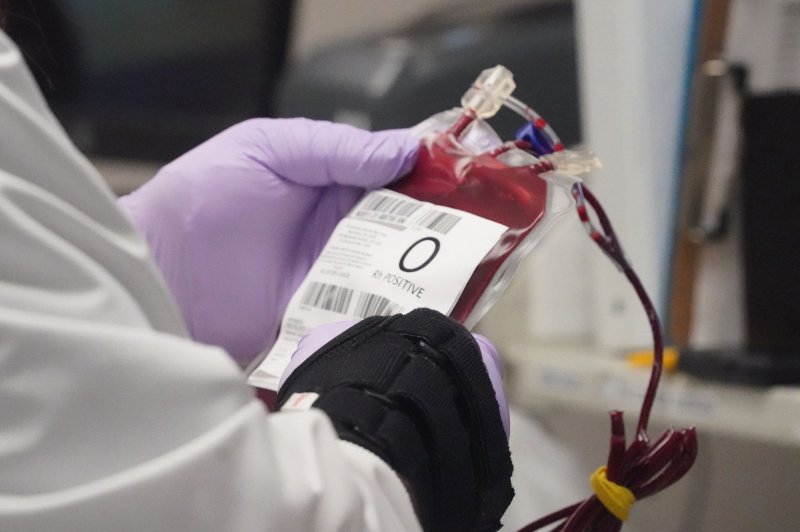British investigators have found thousands of people debilitated by long covid are traveling abroad to seek costly, unproven treatments such as “blood washing." Photo by Bill Greenblatt/UPI |
License Photo
July 12 (UPI) -- An investigation by a prestigious British medical journal has found that thousands of people debilitated by long COVID are traveling abroad from the United Kingdom to seek costly, unproven treatments, such as "blood washing."
The investigations unit of The British Medical Journal and British television network ITV's news division, which worked on the project, found people traveling to private clinics in Cyprus, Germany and Switzerland for anti-clotting therapy and apheresis.
The report was published Tuesday in the medical journal.
Such treatments seem to be based on a hypothesis that "microclots" found in the plasma of people with long COVID may be responsible for their symptoms, investigators said in a news release.
But those experts contacted by the BMJ and ITV News said more research is needed to understand how microclots form and whether they are causing long COVID symptoms.
In the United States, the Centers for Disease Control and Prevention estimates 13.3% of people infected with COVID-19 experience long-COVID issues such as fatigue, breathing and sleep difficulties, and memory problems one month or longer after infection.
Another 2.5% continue to experience long-COVID symptoms at three months or longer after infection, based on their self-reporting, CDC said.
The agency estimates that the long COVID rate is much higher -- more than 30% -- among patients with COVID-19 who were hospitalized.
People running long-COVID clinics in Europe who were contacted by the investigators said their treatments are based on clinical evaluation.
But the investigators' multiple case studies underscored how people paid the equivalent of tens of thousands of U.S. dollars for blood-filtering therapies that didn't improve the long-COVID symptoms that disrupted their lives.
Shamil Haroon, a researcher on the Therapies for Long Covid in non-hospitalized patients trial, a government-funded project to improve long COVID treatment in the United Kingdom, said in a news release that he believes such "experimental" therapies only should be performed in the context of a clinical trial.
But Haroon, a clinical lecturer in primary care at the University of Birmingham, said it's unsurprising that previously high-functioning people, now debilitated to the point to which they can't work or financially support themselves, would seek treatment elsewhere.
"It's a completely rational response to a situation like this. But people could potentially go bankrupt accessing these treatments, for which there is limited to no evidence of effectiveness," Haroon said.
According to Yale Medicine, apheresis, a blood filtering treatment, may be given to patients with sickle cell disease, leukemia, myasthenia gravis and other blood disorders to improve blood components.
This may involve removing too many white blood cells or removing damaged red blood cells and replacing them with red cells from a healthy donor.
The British investigators said that in the United Kingdom, according to the latest official data as of May 1, nearly 2 million people self-reported long-COVID symptoms.















